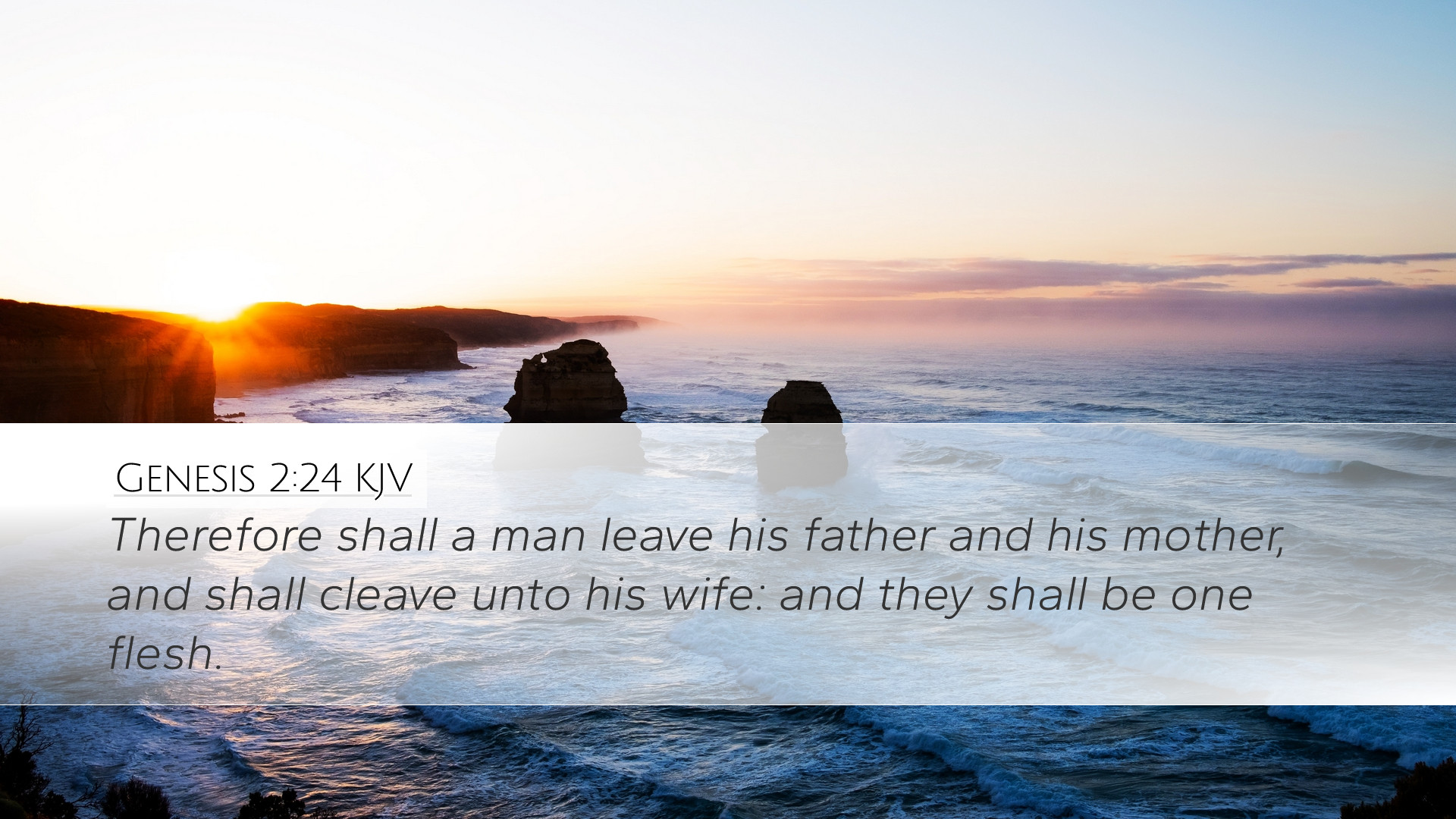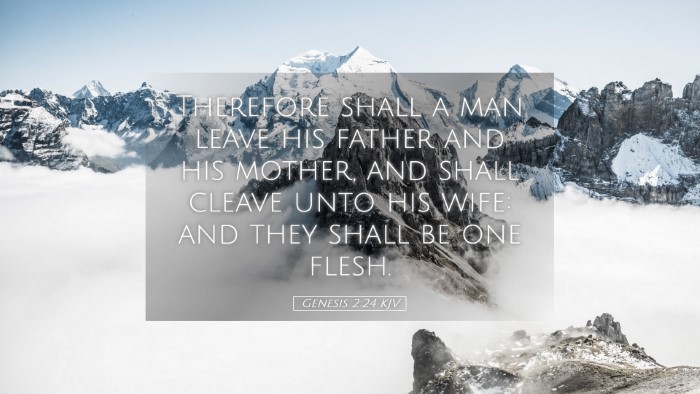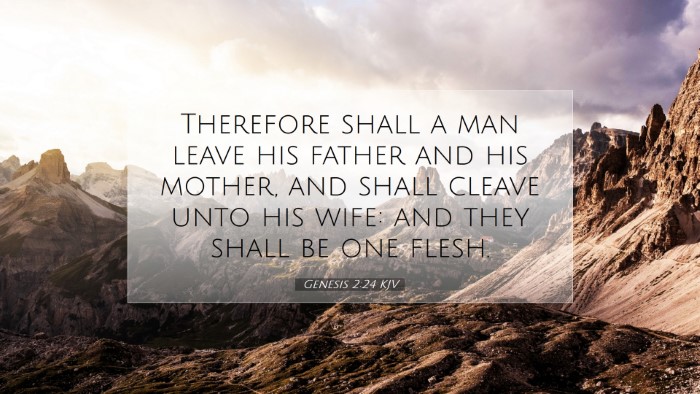Commentary on Genesis 2:24
Genesis 2:24 states: "Therefore shall a man leave his father and his mother, and shall cleave unto his wife: and they shall be one flesh." This verse is foundational not only to understanding marriage but also to comprehending the nature of human relationships as ordained by God. Below, we delve into insights drawn from esteemed public domain commentaries such as Matthew Henry, Albert Barnes, and Adam Clarke to elucidate the significance of this text.
Context of Genesis 2:24
The passage is situated in the account of creation, specifically emphasizing the origin of woman from man and the divine institution of marriage. It follows the description of the creation of Eve and highlights the unity and sacredness of the marital bond.
Exegesis and Key Insights
- Matt Henry's Commentary: Matthew Henry expresses that this verse encapsulates the divine plan for marriage. It indicates that a man is to leave his parents, asserting independence, and embark on a new union. This is a shift not only in geographical location but also in relational priorities. Henry posits that the expression "one flesh" signifies both a physical and spiritual union, reflecting deep intimacy and interdependence.
- Albert Barnes' Notes: Barnes emphasizes the social and spiritual implications of the verse. He notes that the term "leave" suggests a necessity for men to prioritize their wives over familial attachments. This can be interpreted as a call for loyalty and commitment to the spouse. Furthermore, the phrase "one flesh" is a covenantal expression, indicating that in God’s eyes, the couple is unified in purpose and existence, transcending mere physicality.
- Adam Clarke's Commentary: Clarke elaborates on the phrase "shall cleave unto his wife." In his view, 'cleaving' illustrates a strong bond that should exist within the marriage relationship, symbolizing both devotion and perseverance through trials. Clarke makes a strong case for the lifelong commitment of marriage, reminding readers that this union is blessed by God and is irreversible in its sacred nature.
Theological Implications
This verse is critical for understanding the theology of marriage. Here are some theological implications that arise:
- The Divine Institution of Marriage: The establishment of marriage is portrayed as an act of divine ordination. The union between a man and a woman is instituted by God Himself, highlighting its importance in His creation plan.
- Family Dynamics: The process of leaving one’s parents underscores the transition from dependency to independence, illustrating God’s intention for adults to form their own families. It acknowledges the critical change in familial roles, making room for new family structures.
- Unity and Individuality: The 'one flesh' metaphor serves as a powerful reminder of both the unity and individuality present in marriage. While the couple is united, each person retains their identity, contributing uniquely to the relationship.
Practical Applications
For pastors, students, and theologians, Genesis 2:24 offers rich material for teaching and living out Christian marriage principles. Below are practical applications:
- Marriage Counseling: Understanding the significance of leaving parental authority and cleaving to a spouse can help couples navigate their relationships with healthy boundaries and expectations.
- Premarital Preparation: Future spouses should be guided to understand the depth of commitment involved in becoming 'one flesh,' fostering discussions around unity, roles, and responsibilities in marriage.
- Community Involvement: Churches can enrich their teaching on marriage by organizing community discussions and workshops that reflect on Genesis 2:24 and its implications for modern marriages.
Conclusion
In conclusion, Genesis 2:24 serves not just as a verse about marriage but as a profound statement about God’s design for relationships. The insights from Matthew Henry, Albert Barnes, and Adam Clarke collectively reinforce the sanctity of the marital bond, the importance of commitment, and the call to unity. As such, it remains an essential passage for all who seek to understand the biblical perspective on marriage.


